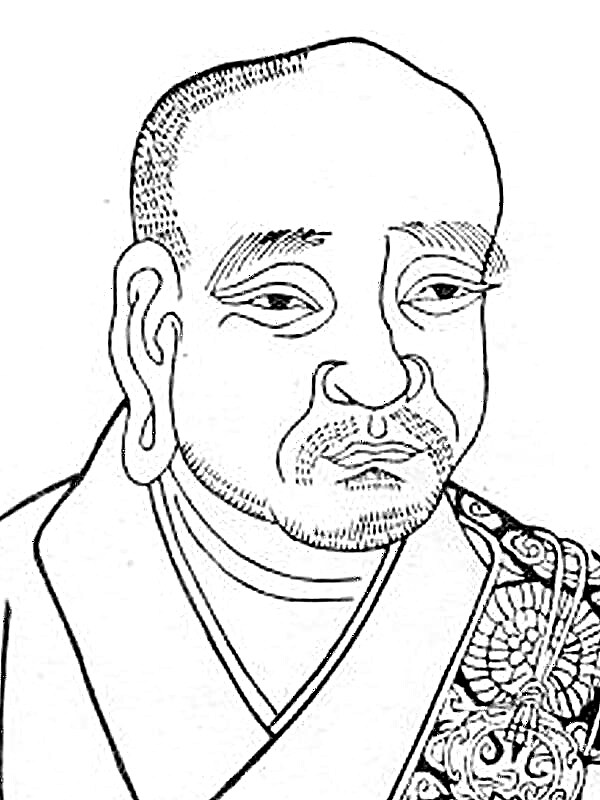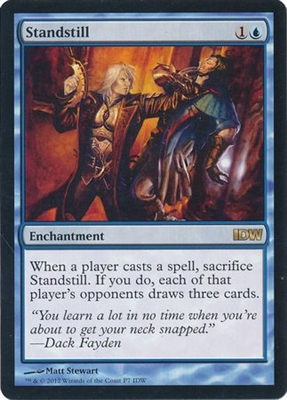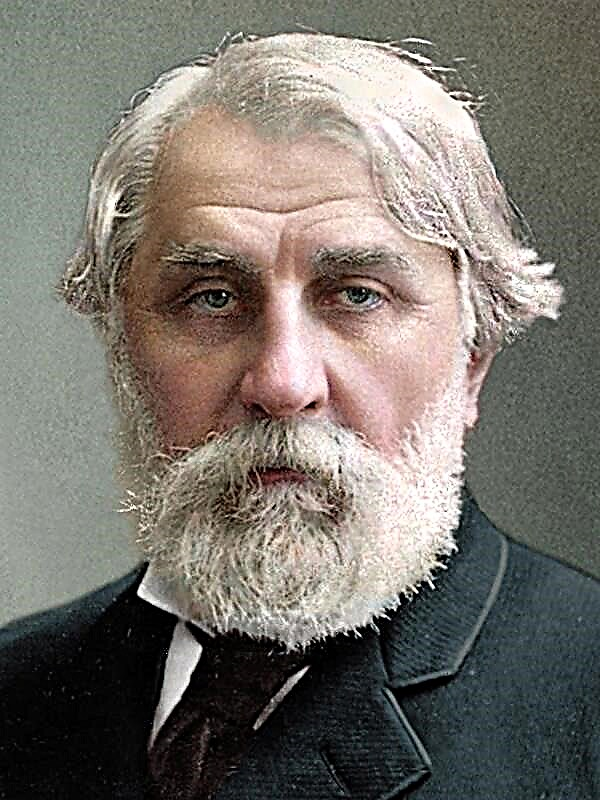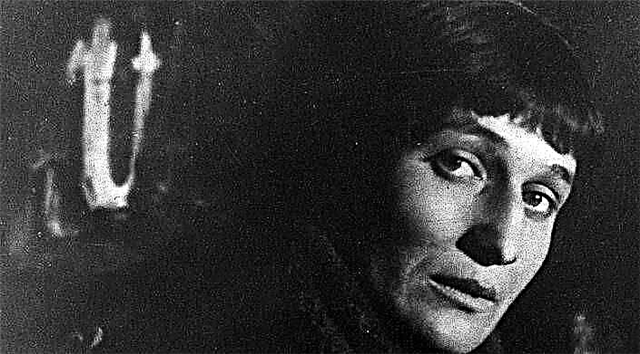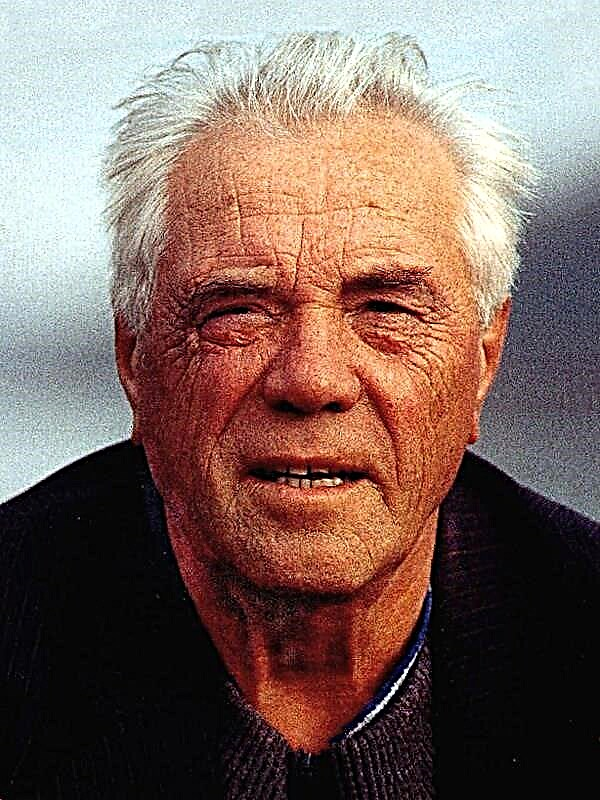At the end of May 1812 in St. Petersburg, on Nevsky Boulevard, two friends met - Vladimir Roslavlev and Alexander Zaretsky. Roslavlev is moping, and cheerful Zaretsky is worried about the condition of his friend. Roslavlev is in love with Polina Lidina. But love is not the cause of melancholy: at the request of a future mother-in-law, he resigned, but meanwhile, according to him, “a storm <...> is being put down over our country”, a war with Napoleon is inevitable, and, like a Russian patriot, Roslavlev is extremely worrying. He is also outraged by the slavish worship of Russian society before all of French and, as a consequence, neglect of Russian customs, language, and history. The only thought that warms his soul and makes him happy is a quick date with the bride.
Roslavlev goes to the village of Uteshino near Moscow to the Lidins. He is full of impatience - after all, a wedding day has already been appointed. But the expectation of "heavenly bliss" does not make him deaf to the suffering of others. So, at one of the postal stations, he takes to his fellow travelers the Moscow merchant Ivan Arkhipovich Sezemov, who hurries home to his dying wife.
Approaching the village, Roslavlev meets hunters, among them Polina's uncle Nikolai Stepanovich Izhorskiy. He reports that Lidina went to the city on a visit and should return in an hour and a half.
The return of the Lidins was overshadowed by an episode that almost ended in tragedy: when their crew crossed the river along a narrow bridge, the doors of the landau opened and Olenka, Polina’s younger sister, fell into the water. If not for Roslavlev, who had rushed right on a horse into the water after the drowning woman, then Olenka would certainly have perished.
The accident with her sister and her subsequent illness gave Polina a reason to ask Roslavlev to postpone the wedding. Vladimir is desperate, but he worships his bride and therefore cannot but yield to her request.
Olenka will not recognize her sister, who “has become so strange, so bizarre for some time”, and here is her decision to postpone the wedding. Polina is no longer able to hide her secret. “Trembling like a criminal,” she confesses to Olenka that she loves another, and if he, like an implacable fate, stands between her and her husband, she will only have to die.
Revival reigns in the house of Izhora. Numerous guests gathered for lunch. Among the invited Lidin with his daughters and Roslavlev. The main topic of conversation is an ambulance with Napoleon. Roslavlev is sure that if Napoleon decides to go to Russia, the war will inevitably become a people’s war, and then “every Russian will have to defend his homeland.”
But the war, it turns out, is already underway. Roslavlev learns about this from a letter from Zaretsky sent to him by a police officer who arrived at Izhora: on June 12, French troops crossed the Neman, and hussar captain Zaretsky, whose regiment was stationed near Bialystok, was already participating in the battle with the French. In this battle, Alexander further informs his friend, he managed to capture the French colonel Count Senikur, or rather save him from death, because, seriously wounded, Senikur did not give up, but "fought like he was desperate." For Roslavlev, everything is decided - the other day he goes to the army.
Two months have passed. After another battle, the Russian rearguard was located two miles from Drogobuzh. Among the resting warriors are Roslavlev and Zaretsky. Recalling the grave impression Zaretsky’s letter made on Polina, Vladimir says that on the way to the army he met French prisoners, among whom was Adolf Senikur wounded in the head. The grave condition of the French colonel allowed Roslavlev to persuade the escort officer to send Senikur to the village for treatment in the village of the Lidins, as it turned out, he was well acquainted with the wounded officer, two years ago he met Lidina in Paris and often went to visit her.
Two days later, in the next battle with the French, Roslavlev was wounded in the arm. Having received leave for treatment, he leaves for Uteshino to visit Polina. The wound delayed Roslavlev in transit, and only two weeks later he was able to leave Serpukhov.
The road to Uteshino was washed out by rains. I had to go around, through the cemetery. A thunderstorm begins. Roslavlev’s stroller finally gets stuck in the mud. Singing is heard from the cemetery church, and intrigued Vladimir goes there, counting on someone else's help. Looking out the window, he sees a wedding ceremony and, to his horror, recognizes Senikur and Polina in the bride and groom. From the greatest shock, the wound of Roslavlev opens, and he, drenched in blood, right on the threshold of the church loses his senses.
Roslavlev woke up the next morning in the house of Izhora. His only desire is to go away from these places, to where he can "drown in the blood of French villains." Having learned that the French are not far from Moscow, Vladimir decides to go to Moscow, because "there, on the ruins of it, the fate of Russia will be decided."
In Moscow, a servant brings Roslavlev, who is dumbfounded, in a fever. The merchant Sezemov hides him at home, betraying him as his son - from day to day, the French will enter Moscow, and then the Russian officer will not be sick.
In early September, Zaretsky arrives in Moscow with the retreating troops. He decides to first visit his friend in the village, and then catch up with his regiment. But on the way to Uteshino, among the militias, Alexander meets Izhorsky, from whom he learns about the tragic history of Polina’s marriage. And then Izhorsky’s servant reports that he met Roslavlev’s servant in Moscow - Vladimir Sergeyevich is in a fever and is in the house of the merchant Sezemov. Zaretsky and Izhorsky are shocked - the news has just arrived, set on fire by the inhabitants of Moscow, surrendered without a fight, the French in the Kremlin. “Unfortunate Moscow!”, “Poor Roslavlev!” They exclaim almost simultaneously.
In search of his regiment, Zaretsky falls into a partisan detachment, commanded by a familiar artillery officer. Until the end of September, he wanders with a flying detachment of partisans, participating in raids on French convoys. Moscow is surrounded, there is no food left in the city, and, despite all the military military precautions of the French, entire batches of foragers are missing. The war with Napoleon assumes a popular character.
Zaretsky worries about the fate of a friend. Dressed in the uniform of the murdered French officer, he goes to Moscow in search of Roslavlev. A chance meeting with the gendarme captain Reno threatens him with a revelation: the Frenchman identified Zaretsky’s horse and saber, which belonged to Reno’s sister’s groom. From the imminent arrest of Zaretsky, Colonel Senicour rescues - returning the debt of honor, he confirms that he is indeed a French captain Danville.
Left alone with the colonel, Alexander reveals to him the reason for his "masquerade": he came for his friend, who, being wounded, could not leave Moscow when French troops entered it. Upon learning that this wounded officer Roslavlev, Senikur considers it his duty to help Zaretsky. Remembering the "terrible night" of the wedding, he feels guilty before Roslavlev. “I took from him more than life,” exclaims Senikur. “Go to him; I’m ready to do everything for him <...> - the Frenchman continues, - <...> maybe he’s not able to walk <...> At the outpost itself, my man and horse will be waiting for you, tell him that you are captain Danville: he will give you her ... "
Zaretsky manages to remove Roslavlev from Moscow. Their path lies in their native regiment, and, in spite of all kinds of road adventures - first a meeting with the peasants who mistook them for the French, and then a military skirmish with the French foragers, in which Roslavlev took command of the peasant detachment - the friends eventually go out on the bivouacs of his regiment.
On October 10, the French left Moscow, "having stayed in it for a month and eight days." Having made several unsuccessful attempts to break into the richest provinces of Russia, Napoleon was forced to retreat along the same path he took to Moscow, leaving thousands of soldiers dying from cold and hunger. At the crossing of the Berezina, Ney’s corps was defeated, the last hope of the French army, and after the battle of Borisov, the French retreat turned into a real escape. Friends say goodbye at the border: the general, under whom Roslavlev was an adjutant, joined with his division the troops besieging Danzig, and Zaretsky’s regiment remained at the forefront of the army.
The siege of Danzig, where the French garrison is located under the command of General Rapp, was delayed. Already November 1813, in the besieged city of famine. Outposts of Russians are constantly alarmed by the partisan attacks of the French garrison. Among them is the “hellish company” of the hussar officer Shambur, who raids for food in the villages where Russian posts are standing all night. In one of these attacks, Shambyur captured Roslavlev. So he gets to Danzig.
Two weeks pass. Under the pretext of suppressing "unfavorable rumors" about the French army, which a prisoner officer allegedly spreads around the city, Roslavleva is sent to prison. This is actually a trick invented by Chief of Staff General Derikou-rum. A certain Florentine merchant is sitting in prison; he is suspected of being a Russian spy. Roslavlev is planted together with the merchant in order to eavesdrop on their conversations, because their desire to speak their native language will be so natural.
The merchant really turns out to be a Russian officer. Moreover, they are familiar: shortly before the war, Roslavlev became an unwitting witness to a duel between this officer and the Frenchman, who allowed himself extremely insulting remarks about Russia and the Russian people.
Suspecting that they are being eavesdropped, the “merchant” warns Roslavlev about this with a note and asks Vladimir, as soon as he is released from prison, to find a woman living on Theater Square on the fifth floor of the red house in the sixth room. She is desperately ill, and if Roslavlev finds her alive, she must be told to burn the papers that the merchant Dolcini handed over to her for preservation.
Roslavleva is really released soon (Shambur vouched for him), and the next day he sets off for Theater Square. The fifth floor of the red house turned out to be a miserable attic, the room is striking in its poverty. In a dying woman, Roslavlev with horror recognizes Pauline. He had long ago forgiven her. Moreover, upon learning that she, having sacrificed everything, went after her husband to share all his hardships and sufferings, he began to have the greatest respect for her.
The dying Pauline tells Vladimir the tragic story of her wanderings. The convoy, in which Polina left Moscow with the retreating French, was attacked by Cossacks. She was saved by a friend of Adolf, who took upon himself the further care of her. After this skirmish, Polina no longer saw her husband and only later found out that Adolf was no longer alive. Then she gave birth to a son. Her only patron, taking care of her and her child, unable to withstand the hardships of retreat, fell ill with fever and died. While there was money, Polina lived in solitude, did not communicate with anyone. Then the Russians besieged Danzig, the money ran out, and she turned to the French general for help. And then Polina made a terrible discovery for herself: she left her family, fatherland, sacrificed everything to become Senikur's wife, and everyone around her considers him his mistress. Then, to feed her son, she asked for alms, but her child died of hunger. Dolcini saved her from starvation, who, learning that she was Russian, took part in her fate.
Pauline begins nonsense. Vladimir leaves her to visit again after a few hours. At this time, Russian troops begin shelling the city. Roslavlev was wounded in the head.
For more than two weeks, the Russian officer has been on the edge of the grave. Waking up, he discovers Shambyur at his bed. The hussar hurries to tell his captive friend the latest news: the first - Rapp is going to sign the surrender, the second - Dolcini was not a merchant, but a Russian partisan. He soon managed to get out of prison, after which Dolcini got along so well with General Dericourt that he ordered the "merchant" to deliver important dispatches to Napoleon. When the "merchant" was withdrawn from the French outposts, he appeared in full view of the Cossacks by his real name and politely said goodbye to the gendarme officer.
Shambur, it turns out, knew Dolcini well, and therefore it was through him that the "merchant" passed the letter to Roslavlev. It was a letter from a dying Polina. In it, she said goodbye and expressed her last wish: she asks Roslavlev to marry Olenka, who always loved him passionately.
Several years have passed. Roslavlev long ago resigned and lives with his wife Olenka and two children in Uteshino, where Zaretsky arrives after six years of separation. They have something to talk about. Recalling the events of the war, Zaretsky asked Polina’s fate: “What happened to this unfortunate? <...> Where is she now? " In response to the question, Roslavlev looked sadly at the white marble monument under the bird cherry: underneath was buried a lock of Polina, which she gave Roslavlev in a farewell letter ...



